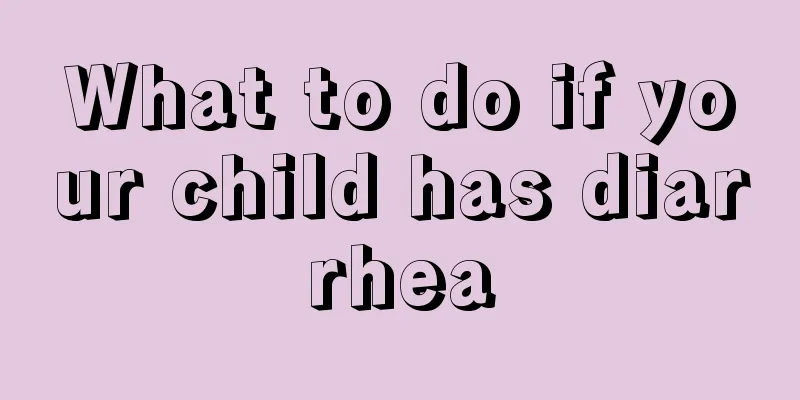Why do babies sweat on their palms and soles at night?

|
We all know that babies are lively and active by nature and are prone to sweating. However, many parents will find that their babies’ palms and soles are prone to sweating when they sleep at night. When such symptoms occur, many parents always think that their babies lack trace elements, so they give their babies excessive nourishment without going to the hospital for examination. In fact, this approach is very wrong, because there are many reasons for the sweating of babies’ palms and soles. We must grasp the reasons and then make timely adjustments. Let’s understand why babies sweat on their palms and soles at night. Why do babies sweat on their palms and soles at night? Normal reasons It is mostly normal for babies to sweat excessively, which is medically called physiological hyperhidrosis. For example, the hot weather in summer causes children to sweat excessively; infants and young children sweat on their heads and necks when they just fall asleep, but the sweating decreases after they fall asleep; babies sweat a lot after playing, running and jumping, but are generally in good condition; in winter, babies wear too many clothes, the quilts are too thick at night, and the indoor air-conditioning temperature is too high, causing babies to overheat and sweat a lot. Some babies sweat only on the head and forehead, commonly known as "steamer head". This is also physiological sweating and parents do not need to worry. Drug treatment is generally not recommended for physiological night sweats. Instead, appropriate measures should be taken to eliminate factors in life that cause high fever. For example, if a child exercises too much before going to bed, or eats a high-calorie meal that causes night sweating, the child's activity level and food intake before going to bed should be controlled. This will also help the child sleep and control obesity, and is beneficial to the child's physical and mental health. Some children sweat profusely at night because the room temperature is too high or the quilt is too thick. The bedroom temperature in winter should be between 24℃ and 28℃; the thickness of the quilt should be increased or decreased with changes in temperature. Generally speaking, if parents pay attention to the above-mentioned factors that may easily cause increased heat production and overcome them, the chances of night sweats will naturally decrease. Even if children occasionally have one or two severe thieves sweats, there is no need to worry too much. The main loss of body fluids and salts due to night sweats can be fully replenished through a reasonable daily diet. Abnormal reasons Babies sweat too much due to certain diseases, which manifests as sweating a lot when they are quiet or after falling asleep at night. The sweat can wet the pillow and clothes, which is called "pathological sweating." Such as active rickets in infants and young children, active tuberculosis in children, hypoglycemia in children, excessive dose of antipyretics and mental factors, such as excessive excitement and fear. Some babies have endocrine diseases (such as hyperthyroidism, etc.), which can also cause pathological sweating. In addition to excessive sweating, each disease also has many other disease manifestations. Parents need to take their baby to the hospital for further examinations. For children with pathological night sweats, treatment should be directed at the cause. Night sweats caused by calcium deficiency should be supplemented with calcium, phosphorus, vitamin D, etc., and the following points should be achieved: (1) Get more exposure to sunlight, including outdoor light and reflected light. You can do activities outdoors, but don't expose yourself to the sun through glass. (2) Vigorously promote breastfeeding. (3) Premature infants, twins, children with frequent diarrhea or other digestive tract diseases should pay attention to adding vitamin D. (4) People in rural areas or cold regions in the north should take measures to prevent rickets, such as "sunbathing in the summer and taking D-drugs in the winter". For night sweats caused by tuberculosis, regular anti-tuberculosis treatment should be carried out under the guidance of a doctor. Whether it is physiological or pathological night sweats, nursing work is very important. After a child has night sweats, you should promptly dry the skin with a dry towel and change clothes in time, and move briskly to prevent the child from catching a cold. Pay attention to replenish water and salt in time. You can supplement with oral rehydration salts, abbreviated as "ORS", or boiled water with some salt and sugar. Sugar can promote the absorption of water and salt. Bedding should also be dried frequently. The function of sunlight is not only to heat and dry, but also to disinfect and sterilize. In addition, children who are prone to night sweats should undergo planned physical exercise, such as sunbathing, cold water baths, etc., to strengthen their physical fitness and improve their adaptability. Your physical condition will be improved and night sweats will stop, which will be better than any panacea. We all know that once there is a problem with the body, we must find out the cause and then prescribe the right medicine, so that we can get a good adjustment. The above is an introduction to why babies sweat on the palms and soles of their feet at night. When encountering such symptoms, parents can take their babies to the hospital for examination to see if there is a lack of trace elements for nourishment. In addition, do not let your baby wear thick clothes indoors. |
<<: How to treat a four-month-old baby's stomach and intestines?
>>: What are the early symptoms of cerebral palsy in infants and young children?
Recommend
What to do if your baby has a fever and a bloated stomach
Children will have fever when they are young. Thi...
Psychological education for children between 0 and 7 years old
Children's education is a very important cour...
Is it good for children to eat pine nuts?
Pine nuts are a type of food that is rich in nutr...
Treatment of baby's cough with white sputum
Babies will cough during their growth process. At...
What causes thrombocythemia in children?
Among many people, children are a relatively weak...
How to deal with a child's continuous fever
I believe that many children will have symptoms o...
What to do if your child stutters
Stuttering is what we often call stammering. Many...
What is the rehabilitation treatment for cerebral palsy in children?
Nowadays, there are often reports on TV programs ...
The child vomited three times at night
It is very hard for mothers to take care of child...
What tests should be done for hernia in children?
Many parents with children will encounter pediatr...
What should I do if my baby walks with his feet turned inward?
Babies often walk with their feet turned inward b...
Is it good to squeeze the nipple for babies?
There are many traditional considerations in the ...
Why does my child keep dripping urine?
Perhaps many parents will find that their childre...
What is the cause of early puberty in children caused by bird's nest?
Children are a relatively special group, because ...
What are the symptoms of baby fever?
Since many young parents have no experience in ha...









